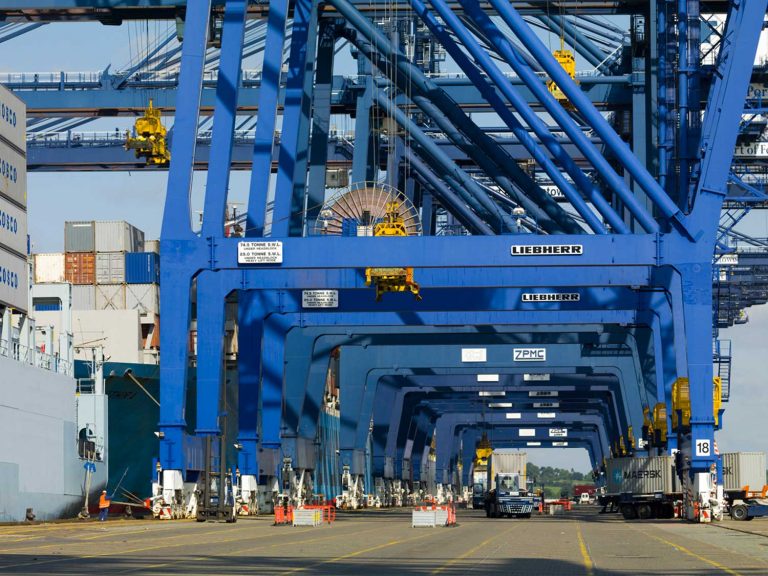
Date:
Felixstowe in the news again – for all the wrong reasons
The start of the working week and the Port of Felixstowe is back in the news, for cancelling empty container restitutions (again), but the challenges facing shippers run much farther afield than Suffolk.
The Taiwanese container shipping line Evergreen has issued a customer notice stating that the port (Felixstowe) announced on Sunday that it would “temporarily stop the restitution of all empty containers until further notice”.
The ban means further challenges to inland container operations, that are already suffering from severe congestion, leading many hauliers and forwarders to blame Felixstowe’s decision to furlough large numbers of staff and issue with its vehicle booking system (VBS).
The port has issued its own update in which it, seemingly, passes the blame back to the lines. “Each shipping line has an agreed empty storage capacity. The receipt of empty containers is managed on a line-by-line basis. If a line exceeds its empty storage capacity receipt of empty containers for that line are temporarily suspended until sufficient empties are removed.”
It also states that “No port workers have been made redundant since the onset of the Covid pandemic” and “All were back at work by early August.”
In respect of the VBS, the port’s update maintains that “In the week to 01.11.2020 a total of 26,376 VBS bookings were available of which 6,959 went unused” while “the average turnaround times for hauliers were 52.74 minutes at Trinity Terminal and 37.96 minutes at Berths 8&9.”
The port has acknowledged that the spike in container volumes that created the congestion they are struggling to work through will last at least into December and possibly through into the New Year.
Felixstowe is not alone, Southampton and London Gateway have been impacted by the same volume spike and there are choke-points around the world.
Australian ports are suffering from a huge build-up of empty containers and MSC has imposed a congestion surcharge on all imports to Auckland (New Zealand) from Europe, China, Japan and South-east Asia.
Shippers from the US have been impacted by strong domestic demand for China exports, with shipping lines suspending bookings of agricultural products in order to quickly reposition empty equipment to the more lucrative Asian export market.
Metro has strong working relationships directly with the ports, carriers and haulage partners, that ensures we are informed and can react swiftly to any issues the ports may face.
Keeping our customers informed through their account management team and via our award winning MVT supply chain visibility tool means we can limit the issues they face, to keep supply chains moving and avoid unnecessary costs.
